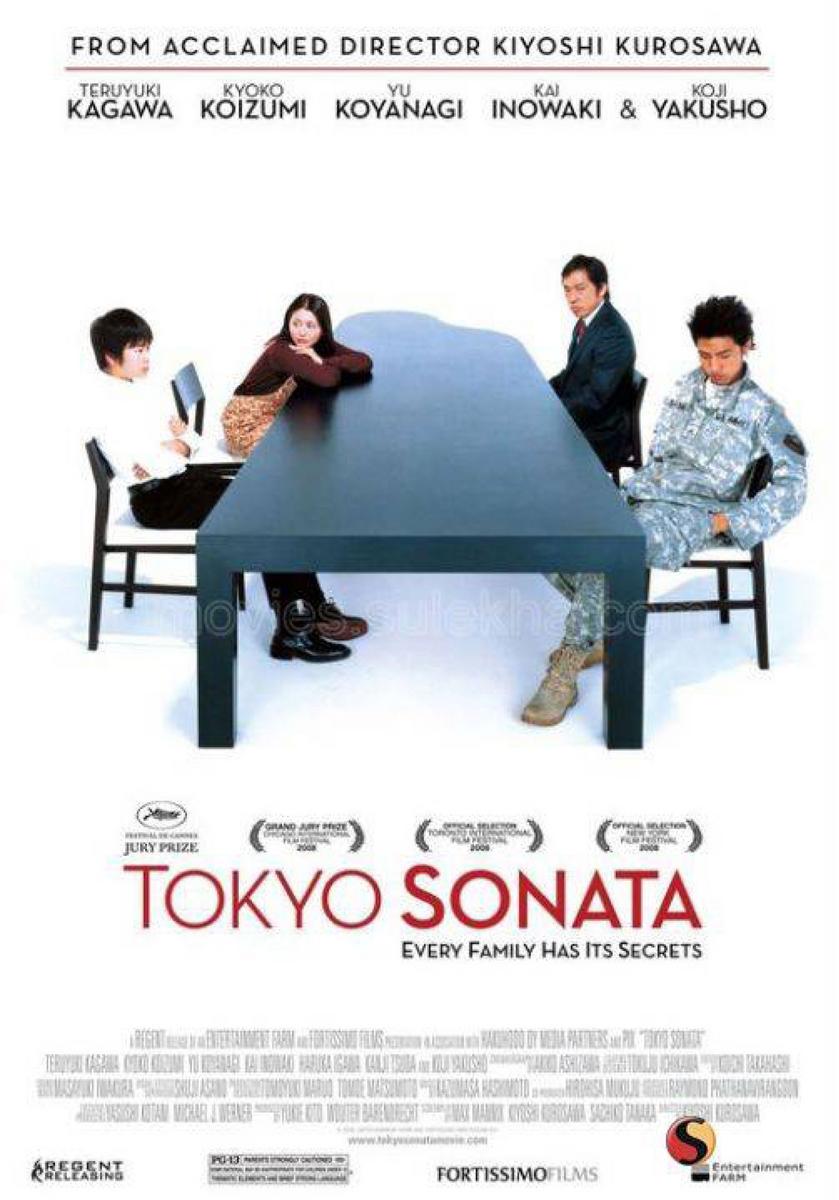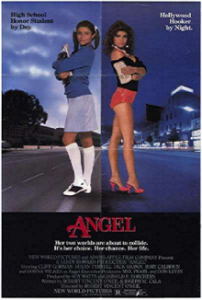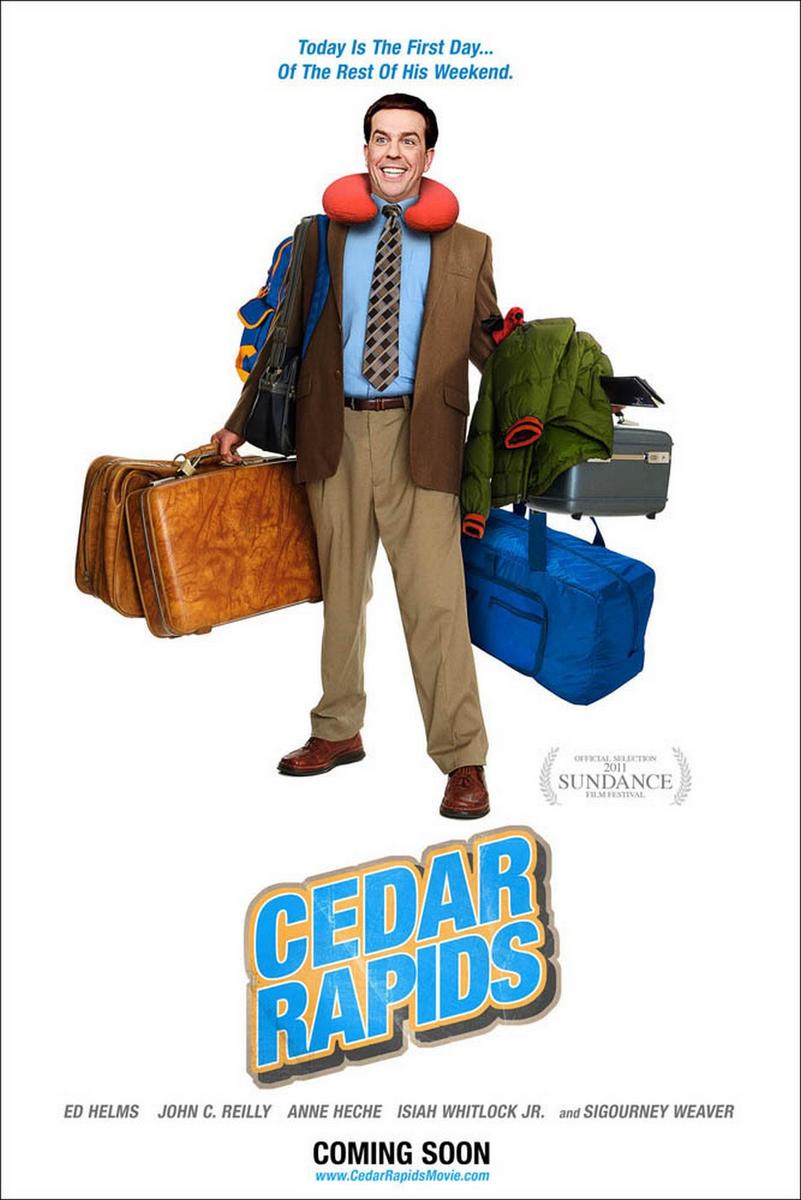
Titles alphabetically I happened to check out on Netflix in the month of August:
Angel (1984) is the ludicrous and coy sexploitation pic about a high school honor student (Donna Wilkes) who is a Hollywood streetwalker by night to pay for his prep school. She mostly takes on dispatched advice by her friends of the transvestite and fellow hookers variety (only a couple boob shots there). The movie in the majority is so fake titillating that Angel only has two johns the entire movie – that are terminally interrupted before any clothes are undone. Wilkes is so artless an actress that we never buy that she is smart enough to be a top GPA student. The one unexpectedly good performance is by Cliff Gorman as a Police Lt. attempting to sway our Angel off the streets at the same time he is on the pursuit of a serial killer of hookers. But you will be in exasperation in time of the scene when a nerd insults our Angel by trying to buy a date with her for a mere forty bucks. Shockingly, this was a minor hit during its original theatrical release. D-
Cedar Rapids (2011, 87 Minutes, R) has the brightest smile of any movie comedy this year, it has been overlooked. Ed Helms (“The Hangover,” TV’s “The Office”) plays Tim Lippe, a middle-aged insurance salesman and naiveté who has never left his hometown of Brown Valley, Wisconsin. Tim is lovestruck for the first time ever as, from the opening scenes, he is having an affair with his former grade school teacher Miss Vanderhei (Sigourney Weaver) who is like Marlon Brando to Helm’s Maria Schneider, a reference for you “Last Tango in Paris” followers out there. After the sudden downfall of the company boss (Thomas Lennon), it looks as if Tim will be dispatched to the Two Diamonds Award convention in Iowa to canoodle with those… that are not his type! Amongst those attending the convention is Anne Heche as a frisky sex-catcher, Isaiah Whitlock as the jolly black guy (Tim has rarely seen a black guy in his life), and John C. Reilly as the alleged client poacher Dean Ziegler. In a stunningly debauched piece of acting, Reilly gives a rare comedy performance that deserves Academy Award consideration. He’s a goof, kind of like “Boogie Nights” except a smarter goof, who makes best friends after one day with anybody that will give him an ear. Nevertheless, it must be exclaimed with as much enthusiasm as possible to hail Helms as our next leading man comedian. A-
Ella Enchanted (2004, 96 Minutes, PG) is a girl-friendly fantasy set in a genial Medieval Times kingdom with Anne Hathaway impeded with a spell of obedience given to her by a fairy godmother at birth. Throughout any adventure in her life, anything that has any sound of a command Ella obeys with bodily compulsion, voilá a clang on the soundtrack. Ella is threatened by the news of her father (Patrick Bergin) re-marrying and is appalled by her horrible impending step-sisters that treat her as a Cinderella. Hatie and Olive (Lucy Punch and Jennifer Higham) are the step-sisters that learn to exploit Ella’s inducement to obedience. So horrible they are that they get in the way of Ella’s volunteer humanitarian efforts to campaign for the civil rights of ogres and elfs whom are designated as social outcasts. When Ella meets the dashing bachelor Prince Charmont (Hugh Dancy) she is not in the least bit smitten by him. But he is smitten with her. “Stay right there,” he says, and so she does. Ella gets caught up in the adventures of a Prince who won’t let her go, and while she uses that time to convince the Prince that he needs to change social order when he becomes King, she to her own surprise falls in love with him. But there is the evil Prince Regent Edgar and his CGI snake Heston whom together are treacherous in their scheme to overthrow the kingdom and destroy the valiant love that is center stage. All of this works in the tradition of “The Wizard of Oz” and although is not near that standard of greatness, it is a likeable and happy entertainment that exclaims the righteousness of girl power. Of course, it is also knowingly pop-referential, but the modern songs and dance numbers are neat and Hathaway is pretty. Pretty neat is “Ella Enchanted.” B
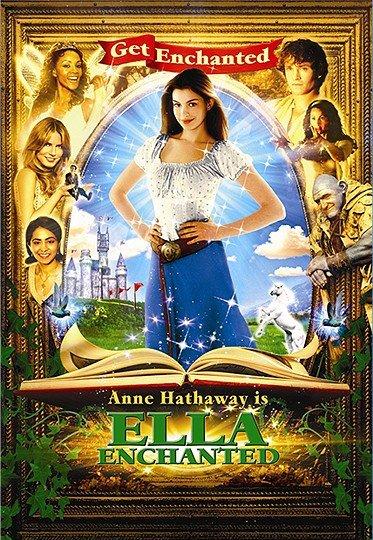
Fried Green Tomatoes (1991, 130 Minutes, Rated R) is a well-produced if lengthy chick flick that features old and new Southern Georgia as its locale as relayed in flashbacks. Starting with the new, Kathy Bates is an unsatisfied wife of a grumbler who finds self-esteem when she befriends the spunky-wily Jessica Tandy at a convalescent home (the grumbler’s mother is dying). Tandy tells her the story of long ago in the racist south when two women friends defied men and the law. Flashbacking to the old, Mary-Louise Parker runs out on her physically abusive husband to open up the Whistle Stop café with her spunky best friend Mary Stuart Masterson (does she become the wizened Tandy in old age? It’s unclear, but readers of the book would say no). They are good women running a successful business by the railroad tracks where no other rest stops could be found. They treat their black help respectively, which spurs an angry ex-husband to coral the KKK. In a way, it is yet another companion film to the current hit “The Help.” Anyway, a murder trial is dramatized in a finely rendered way, with proud women standing up for what is right (“Tomatoes” finds the inspirational genre niche). In the present, Bates loses weight and remakes herself, and liberates from the cast-iron constraints of a rubbish marriage to become her own woman. Nonetheless, director Jon Avnet’s film is a tearjerker that works twice over in both era stories. Avnet can stand alone on this feel-good success as his contribution to society, but his later repugnant flicks “88 Minutes” (2007) and “Righteous Kill” (2008), both with Al Pacino in his career worst, are warts inflicted on society. On the positive, he directed Tandy to a best supporting actress nomination although my favorite girl of the lot is Mary-Louise Parker. As a guy, I argue that there is some latent lesbianism between Parker and Masterson, although the movie doesn’t acknowledge that. Yet in a way, it makes sense that is something that Tandy would realistically leave out in her narration. B
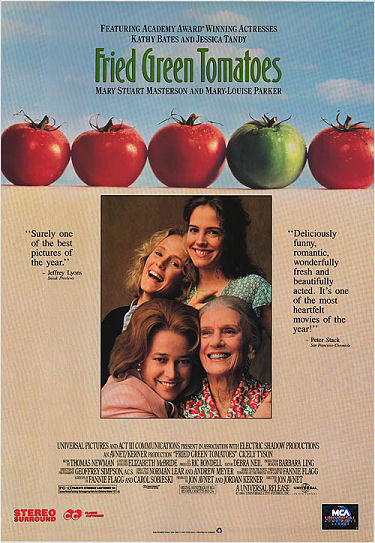
Real Genius (1985, PG, 108 Minutes) is an oxymoron, a mindless comedy with smart humor, a little far off and certainly unique from other college campus movies. Chris Knight (Val Kilmer) is a stud genius who would rather be a popular stud most of his time. Mitch Taylor (Gabe Jarrett) is a teen genius skipping high school academics and is thrown into this Cal Tech. As a result, he finds that genius can be lonesome. But he gets a personality makeover because of Kilmer, his roommate. There is a weird running sight gag of a literal closet genius, some mute brainiac who regularly disappears into a dorm closet. The heroes of the movie though go up against a real square tattle-tale Kent (Robert Prescott), who gets pissed over little things like turning the dorm hall corridors into an ice rink. But the real nemesis is Professor Hathaway (William Atherton, the creep reporter in “Die Hard”) who exploits his students in building a cooperative laser gun contracted by the CIA. The heroes merely want to usurp the smug jerks like Professor Hathaway and his lackey Kent and throw a super slide and bikini party with beauty school girls. It’s all well-played, but you might find yourself dreaming about what Jesse Eisenberg could have done in the role as Mitch. This was Kilmer’s second starring role following the camp classic “Top Secret” (1984) and it shows what a sly, handsome prankster he was in the early years. B
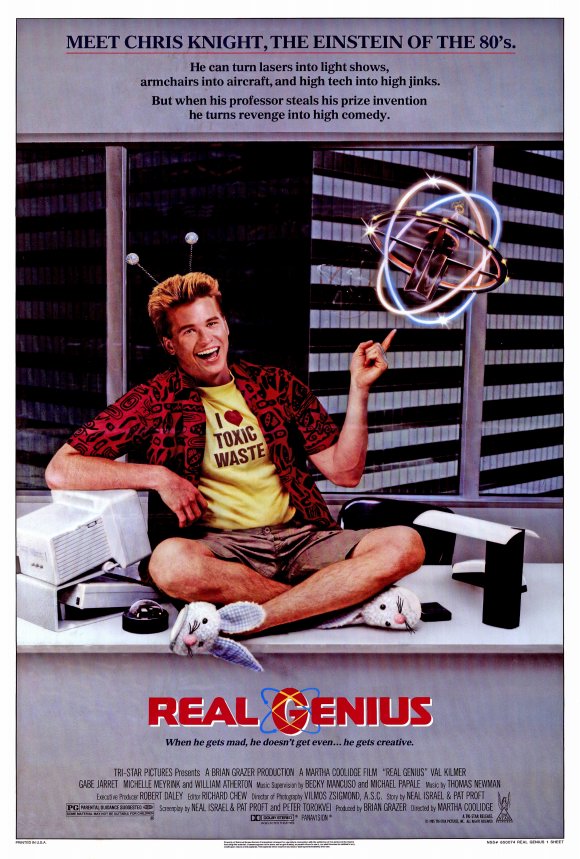
Table for Five (1983, 121 Minutes, PG) has Jon Voight as an estranged father trying to reconnect with his kids while on a Mediterranean cruise with permission by his ex-wife, but his irresponsibility as a good parent cannot be overcome. But he better get used to it, because while on voyage his ex dies back home. I don’t usually like to bring other critics into things, but this flick is famous for being wildly and angrily disputed by Siskel & Ebert back in its time (Siskel was deeply moved by it, Ebert hinted at it for being the worst film of the year). For the first hour, I was with Siskel and was ready to recommend it. Then I swung fervidly to Ebert’s side when the movie caves into impractical sentimentality and phony fatherly pride, with Voight sounding more selfish the more he supposedly loves his children. He has to go head to head with stepfather Richard Crenna who asserts to break the news to the kids and take custody, but Voight wants him to go island hopping first while he prolongs breaking the news to the kids his own way – but it’s so sad, he just can’t bear to break the news. At least not until dad indulges in a bunch of soppy scenes. C-
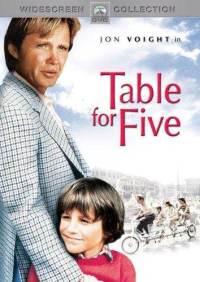
Tightrope (1984, 114 Minutes) is one of those strong examples of Clint Eastwood daring to play any character with major faults as long as it is an interesting character. Eastwood is Wes Block, a New Orleans police detective on the trail of a serial killer preying on women in various professions in the sex industry. Block himself has kinky fetishes such as handcuffing prostitutes during his nightly visits, this supposedly hidden from his two loving daughters whom he is a single father to. Then the killer starts slaying the girls that Block has sex with, even begins to mimic Block’s kinks. The ordinary woman with brains that Block begins to date outside the red light district is Beryl (Genevieve Bujold), at least for the time being. At home, Block’s pre-teen girls show signs of confusion about sex which actually plays for laughs (or does it?), and they also show curiosity in what daddy does at work. What makes the film interesting is seeing how much the girls love daddy no matter what, even if he comes home crashed drunk on the couch. What could have made the film even more interesting is if we had gotten to know the serial killer a little bit better, he’s little more than a masked face by the end despite learning his surprise identity. These kind of smoky, granulated 80’s movies aren’t often praised for cinematography but I would have nominated it along with Eastwood’s overlooked performance. B+
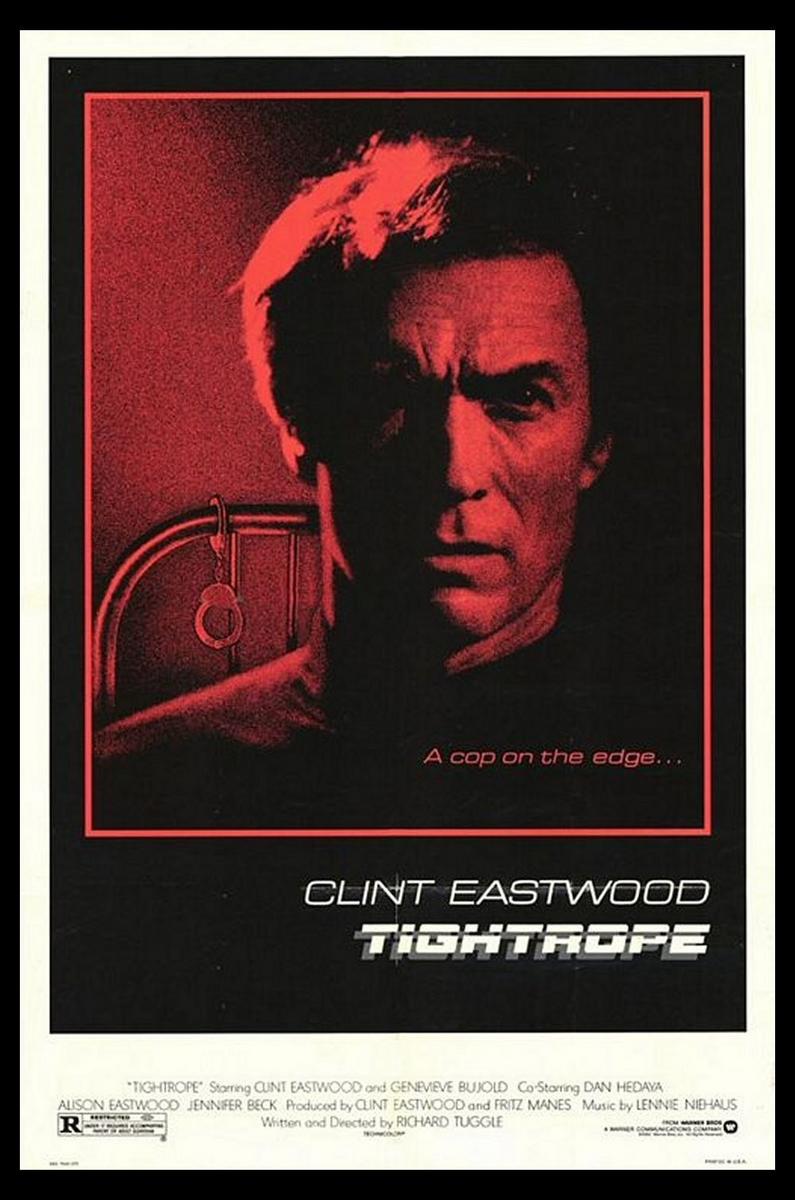
Tokyo Sonata (2009) reveals that there is a similar economic downfall in Japan as there has been in the U.S. After company downsizing, department manager Ryuhei (Teruyuki Kagawa) is let go. Instead of telling his family he continues to leave for the “office” every morning, for a long time hiding the truth from them while he is job hunting. Megumi (Kyoko Koizumi) is his homemaker wife, Takashi (Yu Koyanagi) is the older son opting to enlist in not the Japan army but the U.S. army, and Kenji (Kai Inowaki) is the self-reliant younger son who starts teaching piano lessons that are actually forbidden by his penny-pinching dad. When Ryuhei becomes a toilet cleaner and janitor at a shopping mall, he finds out and forbids his son to teach the lessons. Is the father jealous of his own son’s talent? In their aging marriage, both of them tired of one another, Megumi candidly detests her husband’s lies and hypocrisy. The film is downbeat but insightful and steeped in “real” moments. Even the arrival of a kidnapper who comes into the story from nowhere has genuine pull – this plot catalyst takes the family into a new state of discovery about themselves. Honestly, the film would have been better had the cinematography not been so monochromatic and dreary. But the film ends on a high note: an audience is not moved by jealously, but by envy, with Kenji’s talents. In a way the movie, with each family member given equal attention, is about son Kenji outshining his father, Ryuhei. A son with a brighter future despite being suppressed by his own family that is supposed to “love” him. Japanese with English subtitles. B
